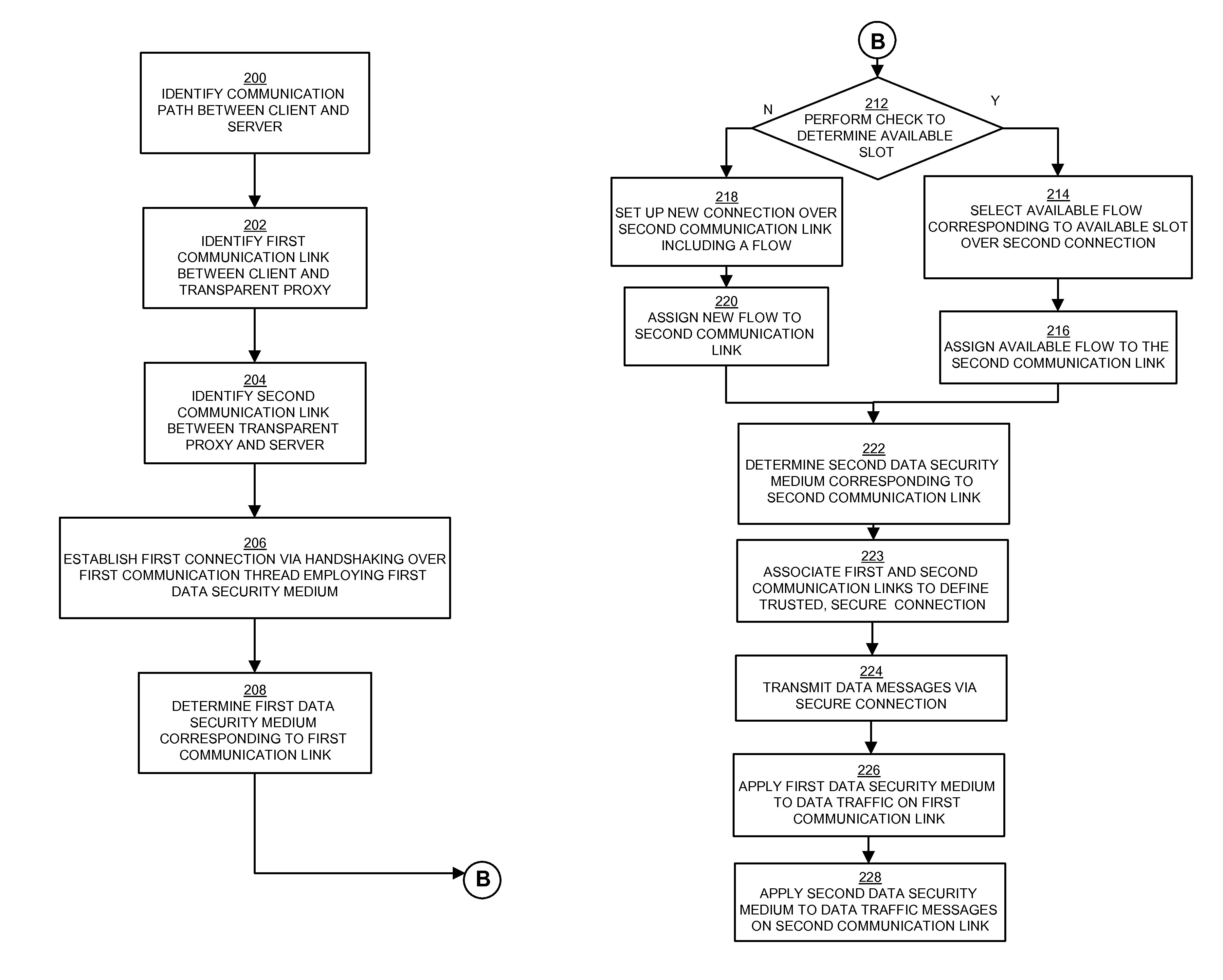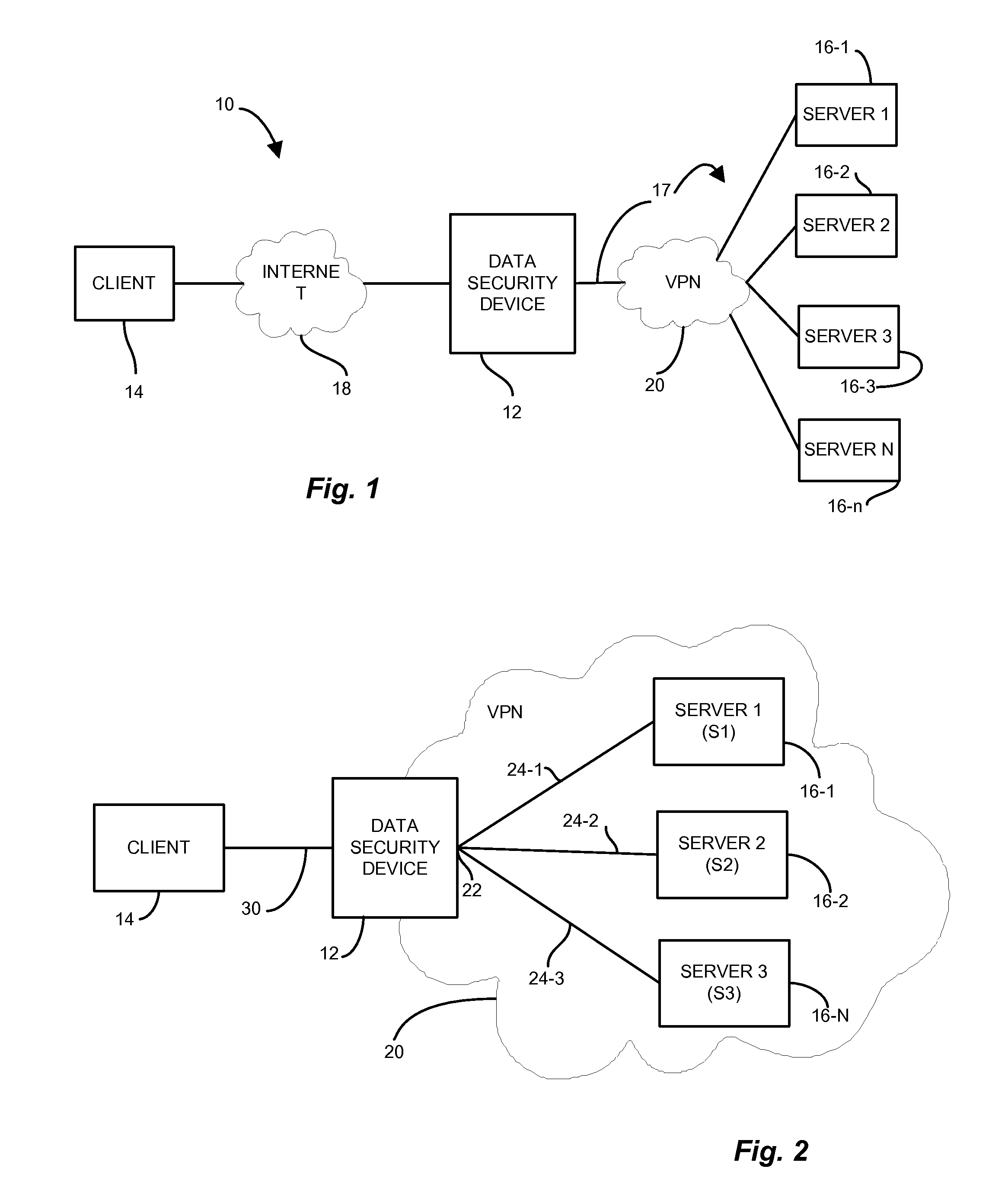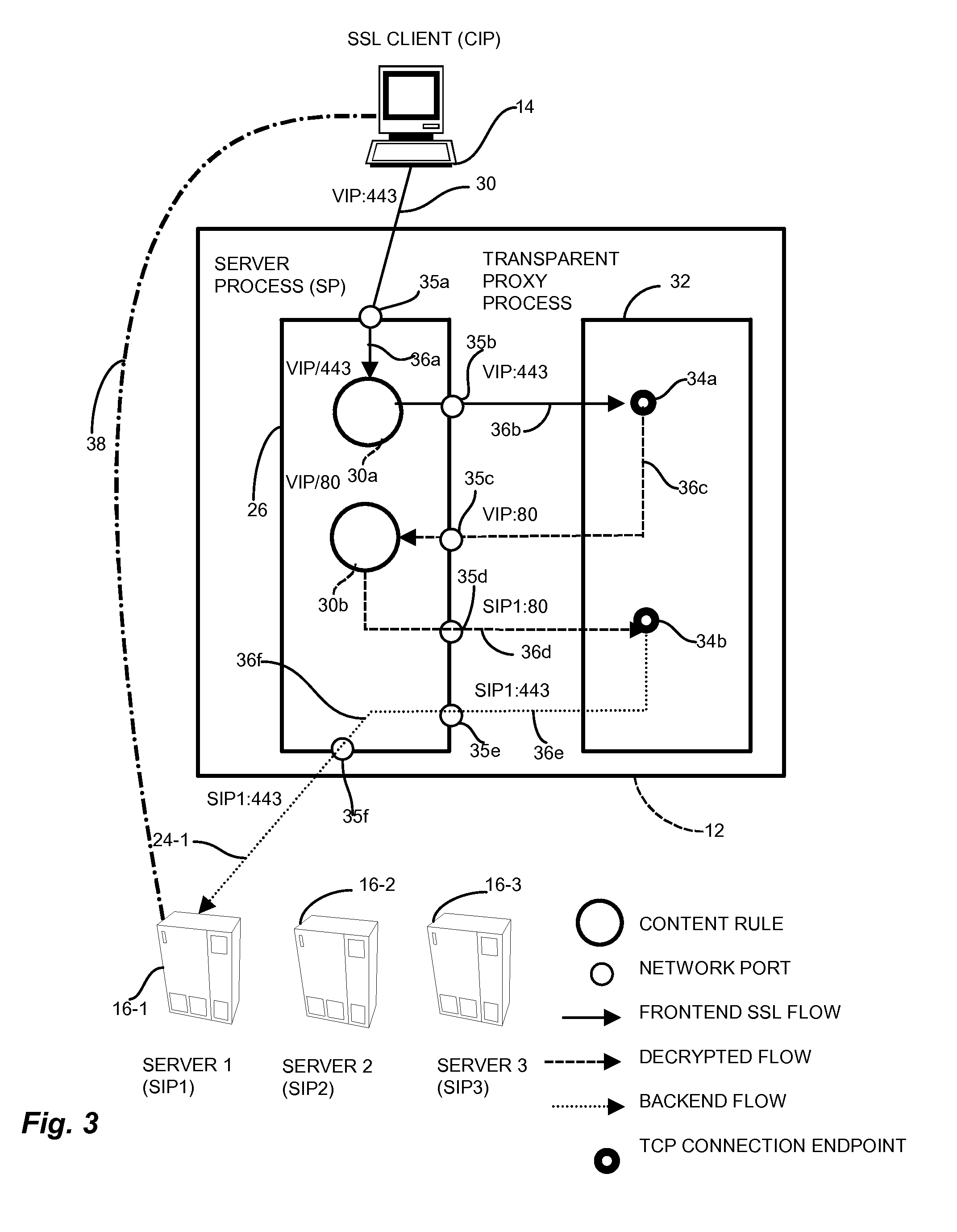Methods and apparatus for network communications via a transparent security proxy
a network communication and security proxy technology, applied in the field of methods and apparatus for network communication via a transparent security proxy, can solve problems such as identity spoofing, denial of service, and loss of privacy, and achieve the effects of reducing processing costs, reducing encryption overhead, and reducing costs
- Summary
- Abstract
- Description
- Claims
- Application Information
AI Technical Summary
Benefits of technology
Problems solved by technology
Method used
Image
Examples
Embodiment Construction
[0032]The invention is directed to techniques for providing a network transport connection via a transparent network proxy that employs different encryption security mediums along a communications session between two endpoints by emulating one of the endpoints at an intermediate node such that the communication session appears as an atomic, secure connection to the endpoint nodes yet provides appropriate security over the end-to-end connection. A sender node initiates a secure communication session with an intended receiver node. A transparent proxy process on the intermediate node receives the request, establishes the link employing an encryption mechanism, and issues a positive acknowledgment to the sender node. The transparent proxy establishes a second link with the intended receiver node, and applies a second, computationally less expensive, encryption mechanism. The transparent proxy combines the two links to form the secure connection but incurring only the mitigated computat...
PUM
 Login to View More
Login to View More Abstract
Description
Claims
Application Information
 Login to View More
Login to View More - R&D
- Intellectual Property
- Life Sciences
- Materials
- Tech Scout
- Unparalleled Data Quality
- Higher Quality Content
- 60% Fewer Hallucinations
Browse by: Latest US Patents, China's latest patents, Technical Efficacy Thesaurus, Application Domain, Technology Topic, Popular Technical Reports.
© 2025 PatSnap. All rights reserved.Legal|Privacy policy|Modern Slavery Act Transparency Statement|Sitemap|About US| Contact US: help@patsnap.com



